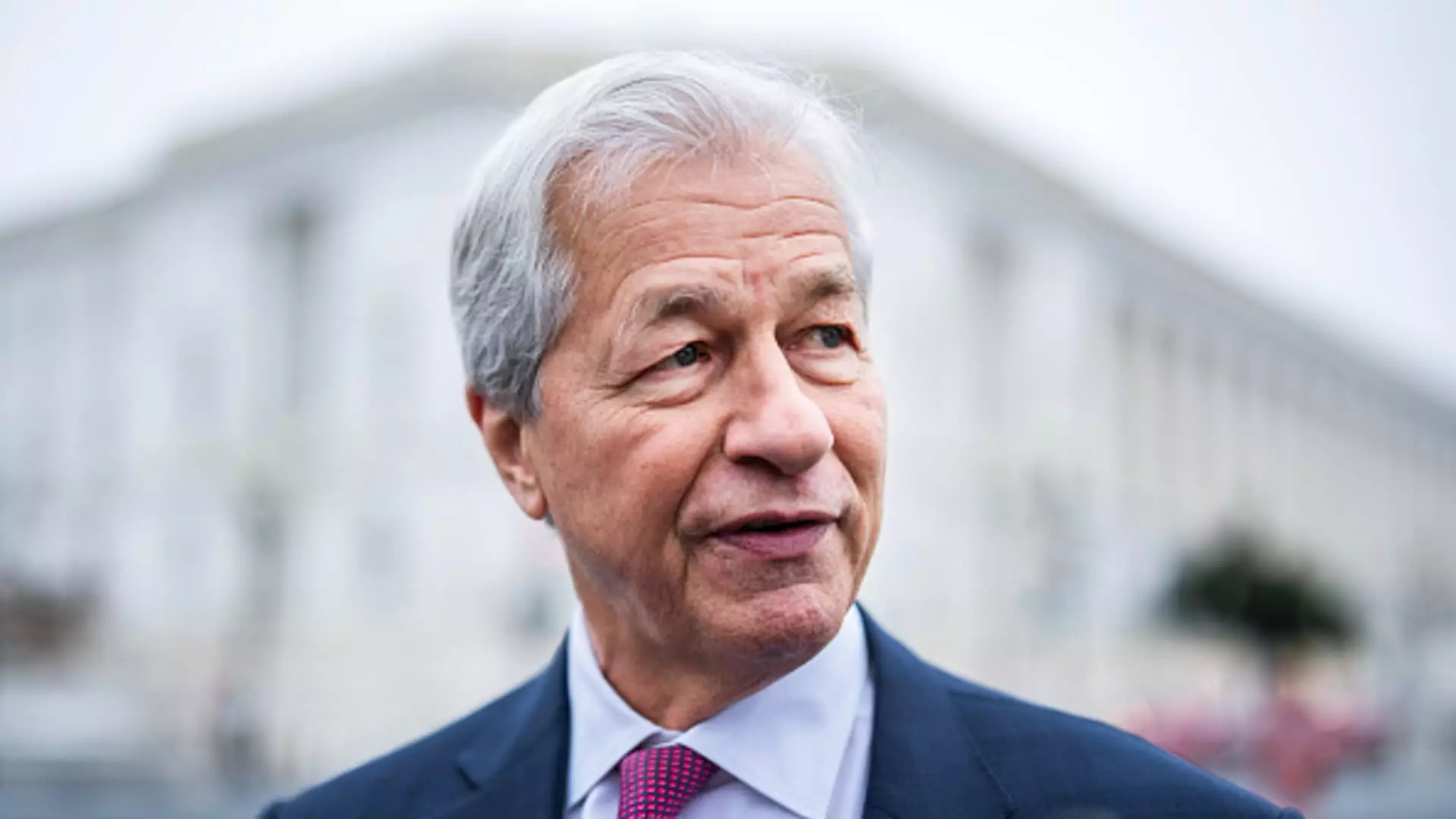In a recent interview with CNBC, Jamie Dimon, the CEO of JPMorgan Chase, voiced concerns regarding the operational inefficiencies of the U.S. government, reflecting a growing sentiment among business leaders. His remarks come at a time when the Trump administration is taking significant steps to reshape federal employment and agency functions, including the dissolution of the Consumer Financial Protection Bureau. Dimon’s nuanced take on the matter suggests that he recognizes the need for reform but is cautious about the direction and execution of these changes.
Dimon specifically criticized the government’s inefficiency, noting that the issue extends beyond simple waste or fraud—it’s about tangible outcomes. This perspective indicates a fundamental belief that government processes should yield meaningful results for citizens. His insistence that the current federal spending habits merit scrutiny prompts a larger conversation about accountability in government operations. The essential question he raises: Are taxpayers receiving value for money spent? This notion of value creation echoes trends in the corporate world where metrics are used to gauge success.
When questioned about his stance on the Department of Government Efficiency, an advisory body founded by Elon Musk, Dimon provided a tempered response. While he avoided a definitive endorsement, his acknowledgment of the necessity for efficiency reforms indicates a willingness to support initiatives aimed at revitalizing governmental structures. Dimon’s hesitance to label the efforts as purely beneficial signals an awareness of potential pitfalls, particularly the risk of overreach that could infringe upon legal boundaries.
The concerns Dimon raised about potential overreach are significant. He articulated that while cost-cutting measures are essential, they must remain within the confines of the law. His belief that the judiciary would act as a check against excessive measures is a reflection of the complex interplay between governmental authority and legal frameworks. By framing the discussion around legality, Dimon encourages a careful approach, one that seeks to innovate while respecting the structures that underpin democratic governance.
Beyond the immediate context of government efficiency, Dimon’s insights also reverberate through the corridors of corporate governance. His company’s robust stance on in-office work embodies a belief that productivity is bolstered in collaborative environments, paralleling his views on governmental function. Furthermore, in discussing diverse topics such as the Ukraine conflict and economic tariffs, Dimon illustrates the interconnectedness of governmental efficiency, economic stability, and corporate strategy, advocating for consistent and effective policy-making.
Jamie Dimon’s commentary sheds light on the pressing need for reform within the U.S. government. His critique emphasizes that it is not merely adequate spending that is integral, but the creation of policies and frameworks that yield favorable outcomes for society. As businesses and government entities navigate ongoing changes, the focus should remain on efficiency, effectiveness, and the protection of democratic principles, ensuring a symbiotic relationship that encourages growth and stability. Dimon’s balanced perspective advocates for a future where government and business can collectively thrive through responsible and efficient governance.


Leave a Reply